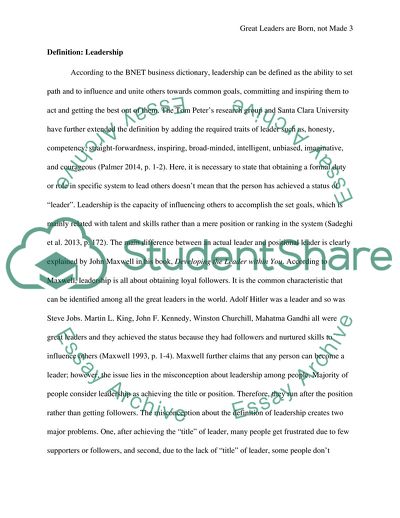Cite this document
(Great Leaders Are Born, Not Made Coursework Example | Topics and Well Written Essays - 2500 words, n.d.)
Great Leaders Are Born, Not Made Coursework Example | Topics and Well Written Essays - 2500 words. https://studentshare.org/social-science/1880494-great-leaders-are-born-not-made-discuss
Great Leaders Are Born, Not Made Coursework Example | Topics and Well Written Essays - 2500 words. https://studentshare.org/social-science/1880494-great-leaders-are-born-not-made-discuss
(Great Leaders Are Born, Not Made Coursework Example | Topics and Well Written Essays - 2500 Words)
Great Leaders Are Born, Not Made Coursework Example | Topics and Well Written Essays - 2500 Words. https://studentshare.org/social-science/1880494-great-leaders-are-born-not-made-discuss.
Great Leaders Are Born, Not Made Coursework Example | Topics and Well Written Essays - 2500 Words. https://studentshare.org/social-science/1880494-great-leaders-are-born-not-made-discuss.
“Great Leaders Are Born, Not Made Coursework Example | Topics and Well Written Essays - 2500 Words”. https://studentshare.org/social-science/1880494-great-leaders-are-born-not-made-discuss.


